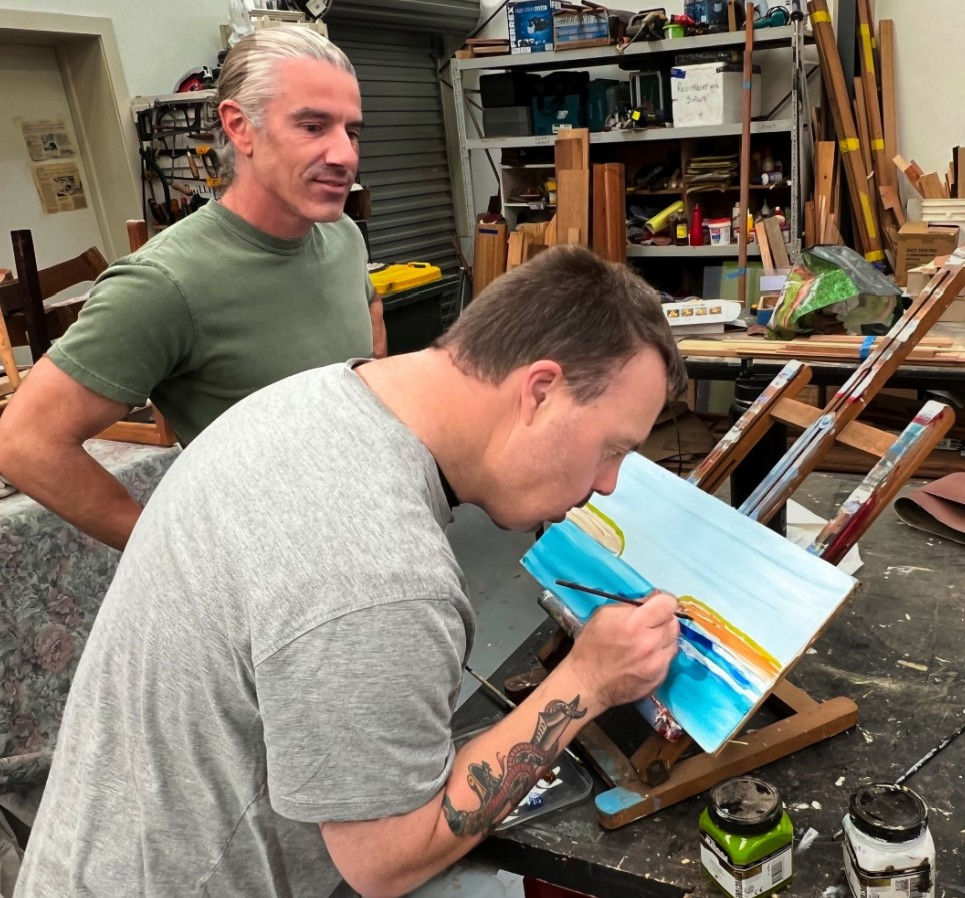The Beach Day Gone Wrong: A Support Worker's Story of Split-Second Choices and Lifelong Lessons
- Ryan Tindal

- Jun 6, 2025
- 3 min read
It was the kind of day that makes a support worker feel lucky to have this job.
The sun was warm, the air crisp, and a gentle breeze carried the scent of salt and sunscreen. Jordan, a 26-year-old support worker, pulled into the car park at Brighton Beach and checked his phone. Right on time. Beside him in the passenger seat, Luca, a 17-year-old participant with moderate autism and limited verbal communication, was bouncing with excitement. He’d been looking forward to this outing all week.
Jordan had been working with Luca for just two months, but they had clicked instantly. Luca didn’t say much, but Jordan knew first hand that beach days were his thing — the sand, the sun, the waves — it calmed him.
Jordan unpacked their beach bag, laid out the towels, and settled in. There were a few other families around, and he felt relaxed. Luca was calm too, running his hands through the sand like he was sculpting invisible castles. All seemed right.
Then Jordan’s phone buzzed.
“Just checking shift swap for Thursday? Can you confirm?”
It was another worker from the agency. Jordan tapped out a quick reply.
That was the moment.
He looked away for less than 30 seconds.
When he looked up, Luca was gone.
The Search Begins
“Luca?” Jordan stood up, heart beginning to race. “Luca!”
He scanned the sand, the shallows, the boardwalk. Nothing. The towel was empty. His shoes were still there.
He sprinted to the nearest lifeguard post. “Have you seen a boy—tall, brown hair, red shirt, no shoes?”
The lifeguard shook his head. “How long’s he been missing?”
Jordan hesitated. “A minute. Maybe two.”
That minute felt like a floodgate opening. Panic. Regret. Guilt.
They called in a beach wide alert. Patrols searched the water. Parents gathered their children closer. A café worker said she’d seen a boy heading up the path toward the public toilets — 15 minutes ago.
Fifteen minutes? Jordan’s knees buckled.
The Discovery
Two hours later, they found Luca three blocks away, sitting cross-legged in a carpark, gently rocking, watching a spinning bike wheel.
A shop owner had spotted him, recognized that he was autistic as his son has a similar presentation.
Luca was safe — dehydrated, but safe. No injuries, no incident. Just lost and overwhelmed.
Jordan sobbed when he saw him. But Luca didn’t respond. His body was still. No smile. No laugh.
It would take a week before Luca started engaging again at his regular day program. Even then, something had changed.
The Investigation and Aftermath
Jordan self-reported immediately. His provider filed a reportable incident with the NDIS Quality and Safeguards Commission. A formal investigation began.
The review found:
Jordan had not kept within arm’s reach of Luca near open water.
He had no emergency GPS tracker or wander-risk protocol in place.
He was using his phone instead of giving full attention.
The outing had not been risk-assessed for environmental hazards or Luca’s elopement history.
The repercussions:
Jordan’s employment was suspended.
He lost his NDIS Worker Screening clearance pending review.
He may never work in support again.
The provider faced scrutiny too — for inadequate training and failing to escalate Luca’s elopement risk from his previous support notes.
The Real Cost of a Split Second
This wasn’t just a near-miss. It was a breach of trust.
Luca’s parents, heartbroken, moved him to a different provider. They now insisted on two-to-one support. Luca wouldn’t go near a beach for six months. What had been his joy now triggered distress.
Jordan — once so full of heart, was deeply affected by the loss of relationship from Luca's family. He had never meant harm. But intent doesn’t erase impact.
What This Story Teaches Us
1. Safety is not a checkbox — it’s a mindset.
Support work, especially in community settings, demands unbroken vigilance. Distraction is a luxury we can’t afford.
2. Vulnerability must be respected, not underestimated.
Even if a participant seems “fine,” historical behaviours like elopement or sensory overwhelm must always shape the support plan.
3. One moment can unravel years of trust.
NDIS support workers carry not just a professional duty — but a deep moral responsibility to protect, to anticipate, to safeguard.
4. Systems matter.
Risk assessments, training, safety protocols — these aren’t bureaucratic red tape. They are lifelines that prevent tragedy.


